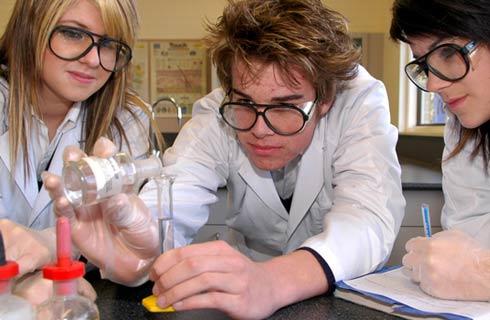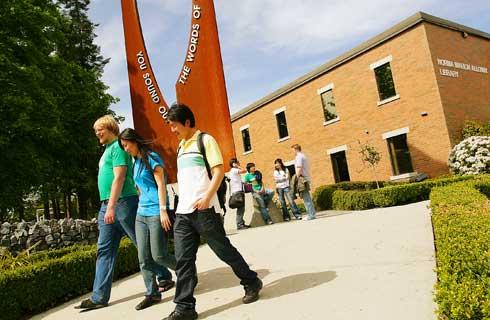理学学士(荣誉)免疫学和微生物学
BSc (Hons) Immunology and Microbiology

学历文凭
Bachelor Degree with Honours

专业院系
Strathclyde Institute of Pharmacy & Biomedical Sciences

开学时间

课程时长

课程学费

国际学生入学条件
IDP—雅思考试联合主办方

雅思考试总分
- 雅思总分:
- 托福网考总分:
- 托福笔试总分:
- 其他语言考试:
CRICOS代码: CC59
申请截止日期: 请与IDP联系 以获取详细信息。
课程简介
Immunology is the study of how the body defends itself against disease. Microbiology is the study of the smallest living organisms (micro-organisms or microbes), opportunity to choose specific degree combinations will allow you to go into specialist biomedical science areas such as neuroscience, cardiovascular research, immunopharmacology, industrial immunology, drug research, biochemistry, microbiology and bacteriology. Immunology helps us understand how the immune system is tricked into attacking its own tissue, leading to diseases like rheumatoid arthritis, diabetes or allergy. Microbiology is the study of the smallest living organisms (micro-organisms or microbes). Microbes are a major cause of disease in humans but they can also be useful in industrial processes from pollution control to the production of important therapeutic compounds. The development of both has long been linked with the development of vaccines for smallpox and anthrax by Jenner and Pasteur respectively. More recently, the application of modern techniques of biology to the immune system has led to a dramatic increase in our understanding of the immune system and its impact on body function, as well as in the control of microbial and other types of disease. The interface between immunology and microbiology is a very active area for both fundamental research and for the development of new biotechnological products to diagnose or prevent disease.
相关申请
 预科
预科 奖学金
奖学金 实习机会
实习机会 在校学习
在校学习 跨境学习
跨境学习 校园授课-线上开始
校园授课-线上开始 在线/远程学习
在线/远程学习
开学时间&学费
学费信息仅供参考,请与IDP联系以获取详细信息
| 开学时间 | 时长 | 学费 | 地点 |
|---|
学校排名

世界排名401
数据源:
泰晤士高等教育世界大学排名
关于思克莱德大学

斯特拉斯克莱德大学是一所领先的国际科技大学,位于英国最大城市之一格拉斯哥的中心地带。它是一个充满活力的国际社区的所在地,有来自140多个国家的近30000名学生。这所大学有着200多年的历史,在这段时间里,它继续提供优秀的学术教学和世界一流的研究,通过灵活、创新的学习方法,帮助学生为自己选择的职业做好最充分的准备。该大学强调实用、有用的学习以及与行业、商业和政策制定者的紧密联系,为毕业生在学习之外的快速变化、竞争激烈的环境做好准备。在斯特拉斯克莱德学生受益于: 世界一流的教学和研究:作为一所屡获殊荣的大学,斯特拉斯克莱德大学以其卓越的学术交付和创新而闻名。 强大的行业合作伙伴关系:斯特拉斯克莱德与劳斯莱斯、西门子、阿斯利康和巴布科克等全球组织密切合作,确保教学反映现实世界的实践和未来的行业需求。 尖端设施: 耗资6000万英镑的学习与教学楼和耗资8900万英镑的技术与创新中心为学习和研究提供了完美的环境。 全球视野:A真正的国际社会,通过世界各地的伙伴关系和研究联系联系联系在一起。 动态城市中心位置:校园位于英国最令人兴奋的城市之一格拉斯哥市中心,是体验繁荣的文化景观、探索标志性建筑和体验世界闻名的友好氛围的基地。
本校相关课程

MEng海军建筑与高性能船用车辆
学历文凭
Bachelor Degree
开学日期
课程费用总额


工程学与海洋工程学硕士
学历文凭
Bachelor Degree
开学日期
课程费用总额


工学海军建筑与海洋工程
学历文凭
Bachelor Degree
开学日期
课程费用总额


机械工程与材料工程学硕士
学历文凭
Undergraduate Masters
开学日期
课程费用总额


机械工程与财务管理学
学历文凭
Undergraduate Masters
开学日期
课程费用总额


机械工程与航空工程学
学历文凭
Undergraduate Masters
开学日期
课程费用总额

其他相关课程

理学学士(荣誉)生物医学
 德蒙福特大学
德蒙福特大学泰晤士高等教育世界大学排名:639
学历文凭
Bachelor Degree with Honours
开学日期
课程费用总额


理学硕士-分子和细胞生物学(研究)
 怀卡托大学
怀卡托大学学历文凭
Masters Degree (Research)
开学日期
课程费用总额


生物医学硕士
 奥克兰大学
奥克兰大学学历文凭
Masters Degree (Research)
开学日期
课程费用总额


MRes Cancer Biology
 诺丁汉特伦特大学
诺丁汉特伦特大学泰晤士高等教育世界大学排名:696
学历文凭
Masters Degree (Research)
开学日期
课程费用总额


理学学士(荣誉)生物医学
 布里斯托大学
布里斯托大学泰晤士高等教育世界大学排名:81
学历文凭
Bachelor Degree with Honours
开学日期
课程费用总额


PhD in Immunological and Cellular Strategies in Metabolic Disease (King's and Technische Universität Dresden)
 伦敦国王学院
伦敦国王学院学历文凭
Ph.D.
开学日期
课程费用总额










